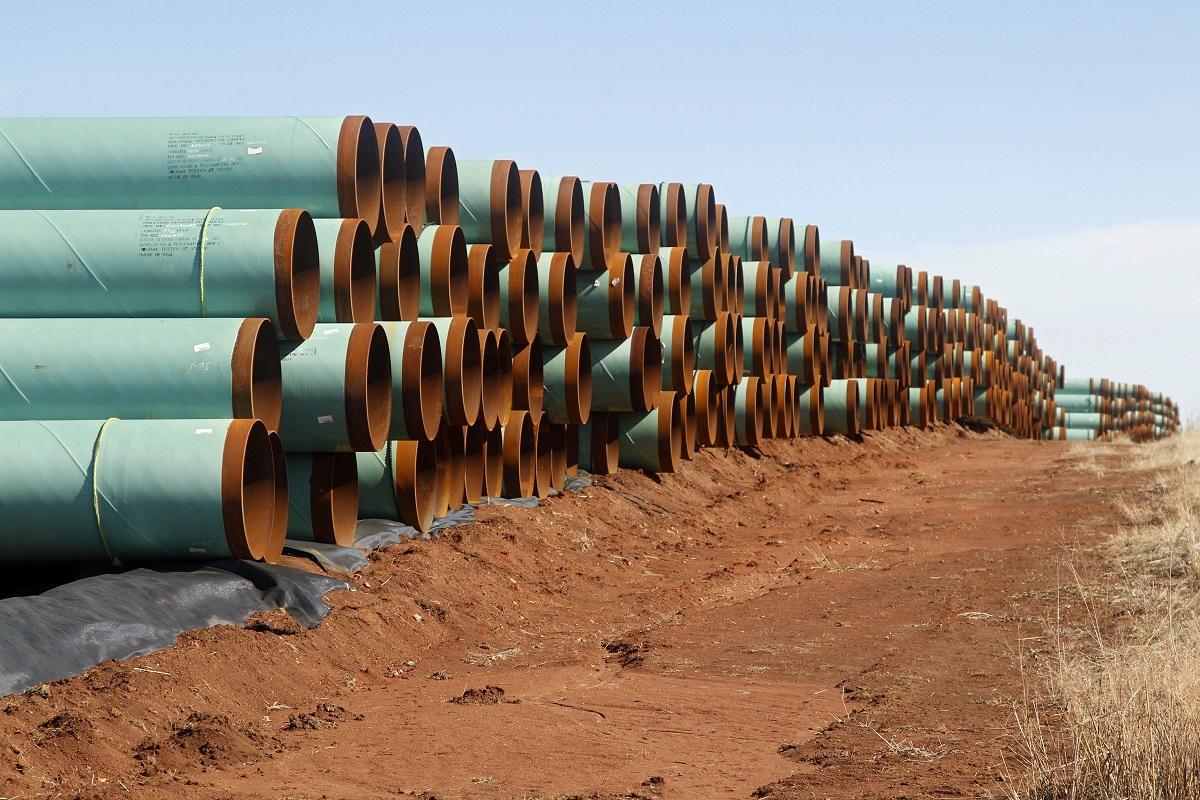Proposed Palmetto Pipeline Faces Opposition In Georgia

The Georgia Department of Transportation is considering giving energy company Kinder Morgan permission to take over private land to build an oil pipeline along Georgia’s coast. In this Feb. 1, 2012 file photo, miles of pipe for the stalled Canada-to-Texas Keystone XL pipeline are stacked in a field near Ripley, Okla.
SUE OGROCKI, FILE / Associated Press
The Georgia Department of Transportation is considering giving energy company Kinder Morgan permission to take over private land to build an oil pipeline along Georgia’s coast.
On Thursday, Gov. Nathan Deal spoke out against the plan in a television interview. Thursday night, people packed into a public hearing near Augusta, Georgia, to voice their opinions.
It was standing room only at an auditorium in Waynesboro. Among the couple hundred people there, several sported green shirts that said, “No Pipeline.” A few were in bright blue shirts that said “Palmetto Pipeline Good For Georgia.”
The overwhelming majority of the 40-or-so people who spoke were opposed to the 360-mile oil pipeline proposed by Kinder Morgan. That included William Morris III, publisher of The Augusta Chronicle.
“Georgia citizens will in no way benefit from this proposed pipeline,” Morris said to applause. Earlier this week, pipeline surveyors were charged with criminal trespassing on property owned by the Morris family according to the Savannah Morning News.
Only three people who supported the pipeline spoke during the meeting citing the potential for work and saying that pipelines are safer than trucks.
The Palmetto Pipeline would travel from South Carolina, along the Savannah River, then down the coast to Jacksonville, Florida. Kinder Morgan needs permission from the state to take over private land, or eminent domain, to build it.
“Money’s not really the main concern for us,” said Aaron Murphy, who attended the hearing with his grandmother.
The pipeline would pass through their tree farm in Burke County, and the family opposes it.
“It’s really the resource itself,” he said. “The ability to maintain that resource and be able to continue to manage timber and allow farming that goes on, on those properties.”
Murphy said that the land has belonged to his family for a 100 years. But they’re newcomers compared to some people who said their families had been in the area since the 1700s.
Many people who spoke said they thought it was wrong to use eminent domain for a private company. Others were worried about the possibility of spills that could damage the water supply or delicate coastal marshes.
The oil in the pipeline is needed in Savannah and Jacksonville, said Allen Fore, a vice president at Kinder Morgan.
“This is all about getting domestic product to domestic destinations,” Fore said.
The final decision on whether Kinder Morgan can use eminent domain is up to Georgia Department of Transportation Commissioner Russell McMurry. He’s expected to decide by May 19.








